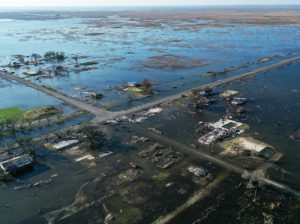Resilient Gulf News
How Can Federal Agencies Advance Racial Equity?
The Texas Power Grid Failure Is a Climate Change Cautionary Tale
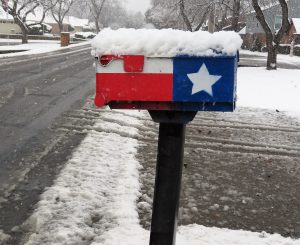 The winter storm that ravaged Texas this month did not come as a surprise to scientists. “The future is not going to be like the past,” CRGC director Melissa Finucane, who also serves as a co-director of the RAND Climate Resilience Center, told TIME Magazine. “If we could just plan a little better, we could anticipate some of these problems.”
The winter storm that ravaged Texas this month did not come as a surprise to scientists. “The future is not going to be like the past,” CRGC director Melissa Finucane, who also serves as a co-director of the RAND Climate Resilience Center, told TIME Magazine. “If we could just plan a little better, we could anticipate some of these problems.”
Building Community Resilience to Large Oil Spills
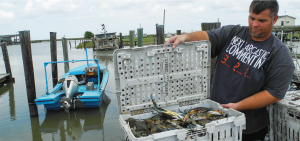 What could communities, government officials, nongovernment organizations, businesses, and scientists do to build community resilience to large oil spills? Answering that question was the goal of CRGC researchers as they researched and wrote their final report, Building Community Resilience to Large Oil Spills: Findings and Recommendations from a Synthesis of Research on the Mental Health, Economic, and Community Distress Associated with the Deepwater Horizon Oil Spill.
What could communities, government officials, nongovernment organizations, businesses, and scientists do to build community resilience to large oil spills? Answering that question was the goal of CRGC researchers as they researched and wrote their final report, Building Community Resilience to Large Oil Spills: Findings and Recommendations from a Synthesis of Research on the Mental Health, Economic, and Community Distress Associated with the Deepwater Horizon Oil Spill.
Blue Crabs, Survey Panels, and More
 CRGC researchers have been busy publishing new research. Two of note: Jacqueline Fiore, Craig Bond, and Shanthi Nataraj released a working paper on “The Impact of the Deepwater Horizon Spill on Commercial Blue Crab Landings”; and Andrew Parker, Amanda Edelman, Katherine Carman, and Melissa Finucane have a journal article “On the Need for Prospective Disaster Survey Panels.” Many more papers are available, linked from our website. View all research results »
CRGC researchers have been busy publishing new research. Two of note: Jacqueline Fiore, Craig Bond, and Shanthi Nataraj released a working paper on “The Impact of the Deepwater Horizon Spill on Commercial Blue Crab Landings”; and Andrew Parker, Amanda Edelman, Katherine Carman, and Melissa Finucane have a journal article “On the Need for Prospective Disaster Survey Panels.” Many more papers are available, linked from our website. View all research results »
Hurricane Recovery in the Bahamas: Turning Good Intentions into Good Decisions
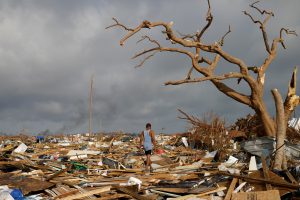 Recovery in the Bahamas will have to be a balancing act. Plans will need to allow for transition toward long-term strategic goals for the nation, but also be mindful of not perpetuating inequities, write CRGC director Melissa Finucane and RAND colleague Joie Acosta. Read more »
Recovery in the Bahamas will have to be a balancing act. Plans will need to allow for transition toward long-term strategic goals for the nation, but also be mindful of not perpetuating inequities, write CRGC director Melissa Finucane and RAND colleague Joie Acosta. Read more »
Paper Explores Challenges Reaching Vulnerable Populations in Gulf Coast
 Delivering risk and crisis communication to U.S. Gulf Coast residents poses a unique challenge to individual and organizational responders, according to a new paper by Elizabeth Petrun Sayers and several CRGC coauthors. Their findings highlight significant differences in preferred communication channels and levels of trust in information sources. Read more »
Delivering risk and crisis communication to U.S. Gulf Coast residents poses a unique challenge to individual and organizational responders, according to a new paper by Elizabeth Petrun Sayers and several CRGC coauthors. Their findings highlight significant differences in preferred communication channels and levels of trust in information sources. Read more »
CRGC Researchers Present at the 2018 Society for Risk Analysis
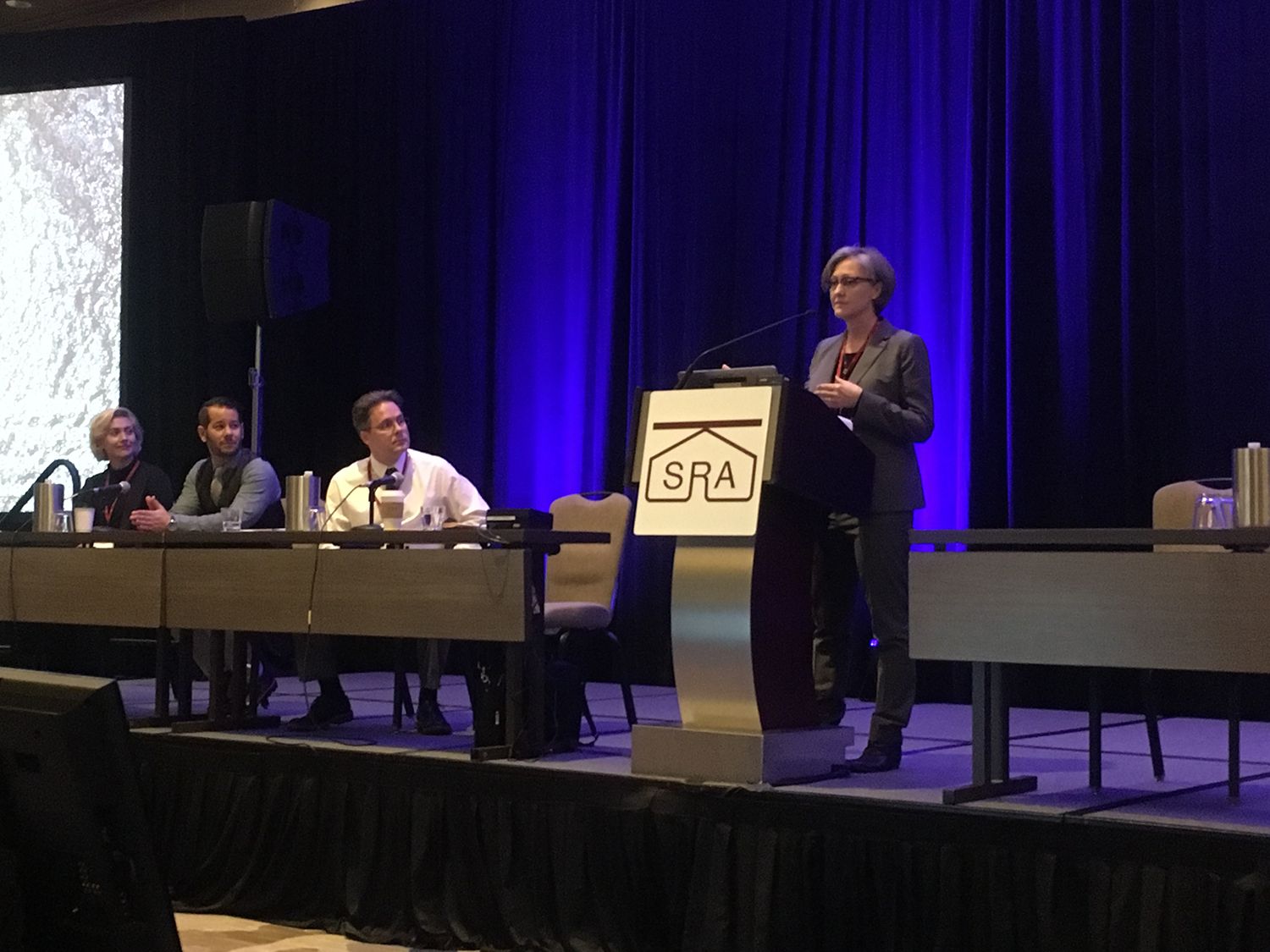 Melissa Finucane, Andrew Parker, Vanessa Parks, and Rajeev Ramchand presented an overview of the Consortium for Resilient Gulf Communities (CRGC) at the annual meeting of the Society for Risk Analysis in New Orleans last month. Read more »
Melissa Finucane, Andrew Parker, Vanessa Parks, and Rajeev Ramchand presented an overview of the Consortium for Resilient Gulf Communities (CRGC) at the annual meeting of the Society for Risk Analysis in New Orleans last month. Read more »
Workshop Explores Regional Priority Setting for Health, Social, and Economic Disruption from Spills
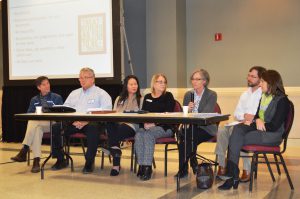 CRGC director Melissa Finucane participated in the kick-off of a collaborative workshop series, “Regional priority setting for health, social, and economic disruption from spills.” The two-day event took place December 4-5 in Houma, Louisiana. Read more »
CRGC director Melissa Finucane participated in the kick-off of a collaborative workshop series, “Regional priority setting for health, social, and economic disruption from spills.” The two-day event took place December 4-5 in Houma, Louisiana. Read more »
Overlapping Environmental Disasters Put a Strain on Gulf Communities
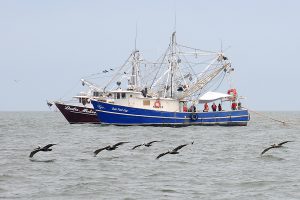 Recent news suggests that the Deepwater Horizon oil spill will soon be eclipsed by the millions of barrels of oil leaking from the Taylor Energy platform since 2004. The Coast Guard this week ordered Taylor to contain the mess, or face massive fines. But cleanup alone may not fully mitigate the damage and effects may linger, as they did after the Deepwater Horizon spill, writes CRGC director Melissa Finucane. Read more »
Recent news suggests that the Deepwater Horizon oil spill will soon be eclipsed by the millions of barrels of oil leaking from the Taylor Energy platform since 2004. The Coast Guard this week ordered Taylor to contain the mess, or face massive fines. But cleanup alone may not fully mitigate the damage and effects may linger, as they did after the Deepwater Horizon spill, writes CRGC director Melissa Finucane. Read more »CRGC Researchers Present Findings on Exposure to Disasters in the Gulf States and Long-Term Mental and Behavioral Health Outcomes
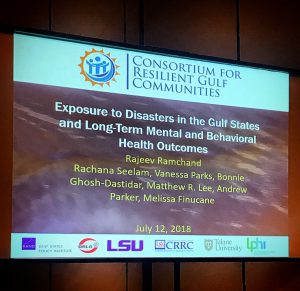 The Natural Hazards Center, in partnership with the International Research Committee on Disasters (IRCD), and with funding from the National Science Foundation, convened its 2018 Researchers Meeting in Broomfield, Colorado on July 11 and July 12, 2018, which focused on improving rapid reconnaissance research and featured sessions designed to identify pressing research needs, better coordinate researchers and research teams, and improve data collection, sharing, and archiving. This year’s meeting, designed to convene researchers across disciplines, who recently received National Science Foundation RAPID grants, as well as those who have ongoing hazards and disaster related research projects, featured the Consortium for Resilient Gulf Communities’ (CRGC) recent findings related to exposure to disasters in the Gulf States and long-term mental and behavioral health outcomes. Read more »
The Natural Hazards Center, in partnership with the International Research Committee on Disasters (IRCD), and with funding from the National Science Foundation, convened its 2018 Researchers Meeting in Broomfield, Colorado on July 11 and July 12, 2018, which focused on improving rapid reconnaissance research and featured sessions designed to identify pressing research needs, better coordinate researchers and research teams, and improve data collection, sharing, and archiving. This year’s meeting, designed to convene researchers across disciplines, who recently received National Science Foundation RAPID grants, as well as those who have ongoing hazards and disaster related research projects, featured the Consortium for Resilient Gulf Communities’ (CRGC) recent findings related to exposure to disasters in the Gulf States and long-term mental and behavioral health outcomes. Read more »

